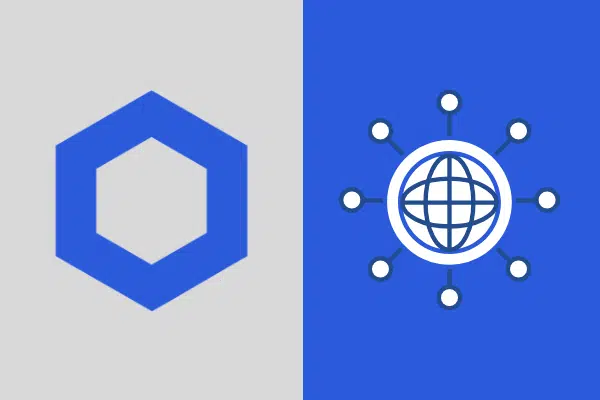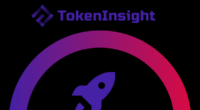On December 9, 2020, Chainlink and The World Economic Forum released a joint announcement. In the announcement, they propose the creation of a framework that allows blockchains and legacy systems to interact. The proposed system would entail the use of decentralized oracle networks that provide a secure gateway.
A New Standard For Merging Legacy Systems & Blockchains
The World Economic Forum and Chainlink co-authored a paper titled “Bridging the Governance Gap: Interoperability for Blockchain and Legacy Systems.” The paper proposes the creation of an open-source framework that will ensure legacy systems are interoperable with the Distributed Ledger Technology (DLT). To achieve this goal, a series of decentralized oracle networks will be created.
The blockchain oracle networks are preferred since they offer an easy-to-integrate abstraction layer that will bridge blockchain and legacy digital systems. With such a system, it would create new use cases for smart contracts in the form of technologically enforced financial contracts, automated insurance policies, and more.
About Oracles
Oracles are secure middleware, which is used to connect a blockchain-based smart contract with real-world data. It enables a blockchain app to interact with any off-chain environment, which includes legacy digital systems.
In the paper, it is proposed that stakeholders who operate legacy digital systems for governments or enterprises can integrate with a decentralized oracle network. The oracle network would comprise multiple audited secure nodes that provide security guarantees around data integrity and its delivery from legacy systems to blockchain networks.
The Proposed Standard
The paper has been reviewed by industry leaders in the blockchain sector as well as representatives from the WEF’s Centre for the Fourth Industrial Revolution. It proposes several guidelines for an industry standard. These are:
- Adoption of an oracle network that operates across all blockchains
- Contribute to or participate in a large open-source community working on an interoperability framework
- Validate the integrity of data inputs and provide tamper-proof data exchange using decentralization
- Demand oracles that support access to authenticate data and credential management
- Utilize crypto to offer crypto-economic guarantees
- Use oracle networks with reputation frameworks and marketplaces to identify high-quality node operators
- Build on a generalized oracle network with multiple layers of security for defense
Comments From Chainlink And WEF
Commenting on the paper, Sheila Warren, Head of Data, Blockchain and Digital Assets and Member of the Executive Committee at the WEF said that organizations had long recognized the importance of connecting blockchains to legacy systems. She added,
“This framework is an important step in providing concrete guidance to ensure that stakeholders can effectively evaluate opportunities, challenges, and potential actions to facilitate much-needed interoperability that can help unlock the benefits of distributed ledger technologies.”
Sergey Nazarov, the Co-founder of Chainlink, also commented on the paper. He noted that existing systems that power governments, the financial sector, and global trade had a place in the blockchain-powered future. He noted that blockchain oracles would help to upgrade legacy systems to work with the blockchain.
A major hindrance that organizations face when a new technology comes into play is suddenly abandoning their existing systems. Not only is it expensive, but it can also be disruptive. However, the proposed oracle framework could help to ensure that organizations transition to the blockchain without experiencing any major disruptions to their systems.
Notice: Information contained herein is not and should not be construed as an offer, solicitation, or recommendation to buy or sell securities. The information has been obtained from sources we believe to be reliable; however no guarantee is made or implied with respect to its accuracy, timeliness, or completeness. Authors may own the crypto currency they discuss. The information and content are subject to change without notice. Visionary Financial and its affiliates do not provide investment, tax, legal or accounting advice.
This material has been prepared for informational purposes only and is the opinion of the author, and is not intended to provide, and should not be relied on for, investment, tax, legal, accounting advice. You should consult your own investment, tax, legal and accounting advisors before engaging in any transaction. All content published by Visionary Financial is not an endorsement whatsoever. Visionary Financial was not compensated to submit this article Please also visit our Privacy policy; disclaimer; and terms and conditions page for further information.

